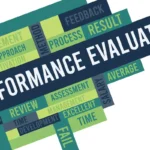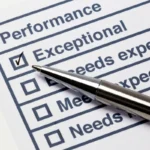1. Introduction
In a world that is constantly evolving, the pursuit of personal growth has never been more crucial. Sustainable personal growth is not just about short-term improvements; it’s about creating lasting change that enhances every aspect of your life. Whether you’re looking to advance in your career, improve your relationships, or enhance your overall well-being, understanding the best techniques for achieving sustainable personal growth is key. This article delves into proven strategies, offering practical advice and expert insights to help you embark on a fulfilling journey of continuous improvement.
2. Understanding Personal Growth
Definition and Importance
Personal growth refers to the ongoing process of self-improvement in various areas of life, including emotional, intellectual, and physical well-being. It involves developing new skills, enhancing your knowledge, and improving your overall outlook on life. The importance of personal growth lies in its ability to transform individuals into the best versions of themselves, allowing them to reach their full potential. Sustainable personal growth ensures that these improvements are not fleeting but become ingrained in your daily life, leading to long-term success and fulfillment.
Personal growth is not a one-size-fits-all journey. It is deeply personal and unique to each individual. What works for one person may not necessarily work for another, which is why it is essential to explore different techniques and find the ones that resonate with you. By committing to sustainable personal growth, you invest in your future, ensuring that you continue to evolve and thrive in all areas of life.
3. Setting SMART Goals
Specific, Measurable, Achievable, Relevant, Time-bound
One of the foundational techniques for achieving sustainable personal growth is setting SMART goals. SMART is an acronym that stands for Specific, Measurable, Achievable, Relevant, and Time-bound. This goal-setting framework ensures that your objectives are clear and attainable, providing a roadmap for your personal growth journey.
- Specific: Your goals should be clear and specific, leaving no room for ambiguity. Instead of setting a vague goal like “improve my fitness,” a specific goal would be “run a 5K marathon in under 30 minutes.”
- Measurable: To track your progress, your goals need to be measurable. This allows you to assess how far you’ve come and what you still need to achieve. For example, if your goal is to save money, set a specific amount you want to save each month.
- Achievable: While it’s important to challenge yourself, your goals should also be realistic and achievable. Setting unattainable goals can lead to frustration and demotivation. Ensure that your goals are within your reach given your current resources and constraints.
- Relevant: Your goals should align with your broader life objectives. They should be relevant to your personal growth aspirations and contribute to your overall well-being and success.
- Time-bound: Finally, your goals need a deadline. Setting a timeframe creates a sense of urgency and motivates you to stay on track. For example, “I want to learn to play the guitar by the end of this year.”
By following the SMART framework, you create a clear path toward sustainable personal growth, ensuring that your efforts are focused and effective.

4. Developing a Growth Mindset
Embracing Challenges and Learning
A growth mindset is a powerful tool for achieving sustainable personal growth. Coined by psychologist Carol Dweck, a growth mindset is the belief that abilities and intelligence can be developed through dedication, hard work, and learning. This contrasts with a fixed mindset, where individuals believe their abilities are static and unchangeable.
Adopting a growth mindset means embracing challenges, seeing failures as opportunities for learning, and persisting in the face of setbacks. This mindset encourages you to step out of your comfort zone and take on new challenges, knowing that each experience contributes to your growth.
For example, if you’re learning a new skill and encounter difficulties, a growth mindset will help you persevere rather than give up. You’ll view the challenges as part of the learning process, which ultimately leads to mastery. Cultivating a growth mindset not only enhances your personal growth but also opens up new possibilities in your personal and professional life.
5. The Role of Habits
Building Positive Habits
Habits are the building blocks of sustainable personal growth. They are the small, consistent actions you take every day that contribute to your long-term success. Building positive habits requires discipline and persistence, but once established, they can have a profound impact on your life.
To build positive habits, start small and focus on consistency. For example, if you want to develop a habit of reading, start by dedicating just 10 minutes a day to reading a book. Gradually increase the time as the habit becomes ingrained in your daily routine.
It’s also important to be mindful of your existing habits and identify those that may be hindering your growth. Replacing negative habits with positive ones is a crucial step in achieving sustainable personal growth. For instance, if you have a habit of procrastinating, you can replace it with the habit of prioritizing tasks and setting deadlines.
Building and maintaining positive habits requires self-discipline and a commitment to your growth journey. Over time, these habits will become second nature, driving you toward your personal growth goals.
6. Continuous Learning
Lifelong Learning and Skill Development
Lifelong learning is at the heart of sustainable personal growth. It involves the continuous pursuit of knowledge and skills that enhance your personal and professional life. In today’s rapidly changing world, the ability to learn and adapt is more important than ever.
Continuous learning can take many forms, including formal education, online courses, workshops, and self-directed study. The key is to stay curious and open to new experiences. Whether you’re learning a new language, developing a technical skill, or exploring a new hobby, continuous learning keeps your mind sharp and your perspectives fresh.
In addition to acquiring new knowledge, continuous learning also involves unlearning outdated beliefs and practices that no longer serve you. This process of unlearning and relearning is essential for personal growth, as it allows you to adapt to new circumstances and challenges.
One practical way to incorporate continuous learning into your life is by setting aside dedicated time each week for learning activities. This could be reading a book, taking an online course, or attending a workshop. The key is to make learning a regular part of your routine, ensuring that you continue to grow and evolve over time.
7. Emotional Intelligence
Managing Emotions and Building Relationships
Emotional intelligence (EI) is a critical component of personal growth. It refers to the ability to recognize, understand, and manage your emotions, as well as the emotions of others. High emotional intelligence allows you to navigate social complexities, build strong relationships, and make informed decisions.
There are four key components of emotional intelligence:
- Self-awareness: The ability to recognize and understand your own emotions. This involves being in tune with your feelings and how they impact your thoughts and actions.
- Self-regulation: The ability to manage your emotions in a healthy way. This includes controlling impulsive behaviors, managing stress, and staying calm under pressure.
- Social awareness: The ability to understand and empathize with the emotions of others. This involves being aware of social dynamics and understanding the needs and perspectives of those around you.
- Relationship management: The ability to build and maintain healthy relationships. This involves effective communication, conflict resolution, and fostering positive connections with others.
Developing emotional intelligence is a lifelong process that requires self-reflection and practice. By enhancing your emotional intelligence, you can improve your relationships, make better decisions, and achieve greater success in both your personal and professional life.
8. Time Management
Prioritization and Time Allocation
Effective time management is essential for achieving sustainable personal growth. With so many demands on our time, it can be challenging to stay focused on personal growth goals. However, by mastering the art of time management, you can ensure that you make progress toward your objectives without feeling overwhelmed.
One of the most effective time management techniques is prioritization. Start by identifying your most important tasks and focusing on them first. This ensures that you tackle the tasks that have the greatest impact on your personal growth. Tools like the Eisenhower Matrix can help you prioritize tasks based on their urgency and importance.
Another key aspect of time management is time allocation. This involves setting aside specific blocks of time for different activities, ensuring that you stay on track with your goals. Techniques like time-blocking or the Pomodoro Technique can help you manage your time more effectively.
It’s also important to be mindful of how you spend your time. Eliminating distractions and minimizing time-wasting activities can free up more time for personal growth. For example, reducing time spent on social media or watching TV can create more opportunities for learning, exercise, or other growth activities.
By mastering time management, you can create a balanced schedule that allows you to pursue personal growth while managing other responsibilities.
9. Physical Health and Well-being
Exercise, Nutrition, and Sleep
Physical health is a cornerstone of sustainable personal growth. Without good health, it’s challenging to focus on personal development and achieve your goals. Taking care of your body through regular exercise, proper nutrition, and sufficient sleep is essential for maintaining the energy and mental clarity needed for personal growth.
Exercise is crucial for both physical and mental well-being. Regular physical activity not only improves your physical fitness but also boosts your mood, reduces stress, and enhances cognitive function. Whether it’s through cardio, strength training, or yoga, finding an exercise routine that works for you is key to maintaining your health.
Nutrition plays a vital role in your overall well-being. A balanced diet that includes a variety of fruits, vegetables, whole grains, and lean proteins provides the nutrients your body needs to function optimally. It’s also important to stay hydrated and avoid excessive consumption of processed foods and sugars, which can negatively impact your health.
Sleep is often overlooked but is essential for personal growth. Quality sleep allows your body and mind to rest, recover, and recharge. Lack of sleep can lead to decreased productivity, impaired cognitive function, and a weakened immune system. Prioritizing sleep by establishing a consistent sleep routine and creating a restful sleep environment is crucial for sustainable personal growth.
By taking care of your physical health, you create a strong foundation for personal growth. When your body is healthy and well-nourished, you’re better equipped to pursue your goals and overcome challenges.
10. Mindfulness and Meditation
Staying Present and Reducing Stress
Mindfulness and meditation are powerful practices that can enhance your personal growth journey. Mindfulness involves staying present and fully engaged in the moment, while meditation is a practice that helps calm the mind and reduce stress. Both practices have been shown to improve focus, emotional regulation, and overall well-being.
Mindfulness can be practiced throughout the day by bringing your attention to the present moment. Whether you’re eating, working, or spending time with loved ones, mindfulness encourages you to be fully present and aware of your thoughts, feelings, and surroundings. This heightened awareness can lead to greater self-understanding and emotional balance.
Meditation is a more structured practice that involves sitting quietly and focusing on your breath, a mantra, or a specific thought. Meditation helps quiet the mind, reduce stress, and increase your ability to concentrate. Regular meditation practice has been linked to a variety of benefits, including improved mental clarity, emotional stability, and even physical health.
Incorporating mindfulness and meditation into your daily routine doesn’t have to be time-consuming. Even just a few minutes a day can make a significant difference in your overall well-being and personal growth. Over time, these practices can help you develop a greater sense of inner peace, resilience, and self-awareness.
11. Networking and Building Relationships
The Power of a Support System
Building strong relationships and networking with like-minded individuals is a key component of sustainable personal growth. A supportive network provides encouragement, feedback, and opportunities for collaboration, all of which are essential for growth.
Networking involves connecting with others who share your interests, goals, or values. This can be done through professional associations, social groups, or online communities. By surrounding yourself with positive influences, you create an environment that fosters personal growth and motivates you to stay on track with your goals.
Building relationships is about more than just networking; it’s about forming meaningful connections with others. Strong relationships provide emotional support, guidance, and a sense of belonging. Whether it’s with family, friends, colleagues, or mentors, these relationships are vital to your personal growth journey.
To build and maintain strong relationships, focus on effective communication, empathy, and mutual respect. Be open to feedback, offer support to others, and take the time to nurture your connections. A strong support system can provide the motivation and encouragement you need to keep moving forward, even in challenging times.
12. Overcoming Obstacles
Resilience and Adaptability
Personal growth is not without challenges. Along the journey, you will inevitably encounter obstacles that test your resilience and adaptability. The ability to overcome these obstacles is crucial for sustainable personal growth.
Resilience is the capacity to bounce back from setbacks and challenges. It involves maintaining a positive attitude, staying focused on your goals, and finding solutions to problems. Resilience can be developed through practices such as positive thinking, stress management, and seeking support from others.
Adaptability is the ability to adjust to new circumstances and challenges. In a rapidly changing world, adaptability is essential for personal growth. This means being open to change, learning from experiences, and being willing to try new approaches when faced with obstacles.
When you encounter challenges on your personal growth journey, it’s important to view them as opportunities for growth rather than setbacks. By developing resilience and adaptability, you can navigate obstacles with confidence and continue to make progress toward your goals.
13. Tracking Progress
Regular Reflection and Adjustment
Tracking your progress is a vital part of sustainable personal growth. Without regular reflection and assessment, it can be challenging to determine whether you’re on track to achieve your goals. By regularly monitoring your progress, you can make necessary adjustments and stay aligned with your growth objectives.
Regular reflection involves taking time to review your goals, assess your achievements, and identify areas for improvement. This can be done through journaling, self-assessment tools, or discussions with a mentor or coach. Reflecting on your progress allows you to celebrate your successes, learn from your experiences, and make informed decisions about your next steps.
Adjustment is the process of making changes to your goals or strategies based on your progress. If you’re not seeing the results you desire, it may be necessary to adjust your approach or set new goals. Flexibility is key to sustainable personal growth, as it allows you to adapt to new circumstances and challenges.
By regularly tracking your progress and making adjustments as needed, you can ensure that you stay on track and continue to make meaningful strides toward your personal growth goals.
14. Expert Insights
Case Studies or Expert Opinions
Incorporating insights from experts or relevant case studies can provide valuable perspectives on personal growth. For example, studies on the effectiveness of goal-setting or interviews with successful individuals can offer practical tips and inspiration.
Expert opinions can shed light on the best practices for personal growth. For instance, psychologists and personal development coaches often emphasize the importance of self-awareness, goal-setting, and resilience. By learning from experts in the field, you can gain a deeper understanding of the strategies that work best for sustainable personal growth.
Case studies provide real-world examples of individuals who have successfully achieved personal growth. These stories can serve as inspiration and offer practical insights into the challenges and triumphs of the growth journey. For example, the story of someone who overcame significant obstacles to achieve their goals can motivate you to persevere in your own journey.
By drawing on expert insights and case studies, you can gain valuable knowledge and inspiration that can guide you on your personal growth journey.
15. Practical Applications
Implementing Strategies in Daily Life
To achieve sustainable personal growth, it is essential to apply the strategies discussed in this article to your daily life. Consistency is key to making lasting changes and ensuring that your growth journey is successful.
Implementing strategies in your daily life involves making small, manageable changes that align with your goals. For example, if you’re working on improving your time management skills, you might start by using a planner to schedule your tasks for the day. If you’re focusing on building positive habits, you might create a morning routine that includes exercise, meditation, and reading.
It’s also important to integrate personal growth practices into your daily routine. Whether it’s setting aside time for mindfulness, practicing gratitude, or engaging in continuous learning, these practices should become a regular part of your life.
Consistency is crucial for sustainable personal growth. While it’s normal to encounter setbacks or challenges along the way, staying committed to your growth journey and making adjustments as needed will help you achieve your goals.
By implementing these strategies in your daily life, you can create lasting change and continue to grow and evolve over time.
16. Future Outlook
Emerging Trends in Personal Growth
Personal growth is an evolving field, with new trends and practices emerging regularly. Staying informed about these developments can help you adapt and continue growing.
Emerging trends in personal growth include practices such as digital detoxes, holistic health approaches, and technology-driven learning. These trends reflect the growing awareness of the need for balance and well-being in the modern world.
Digital detoxes involve taking a break from technology to focus on self-care and mindfulness. As our lives become increasingly digital, many people are recognizing the importance of unplugging and reconnecting with the present moment.
Holistic health approaches emphasize the interconnectedness of mind, body, and spirit. This trend involves integrating practices such as meditation, yoga, and nutrition into your personal growth journey.
Technology-driven learning is another emerging trend that is shaping the future of personal growth. Online courses, apps, and virtual coaching platforms are making it easier than ever to access personal development resources and connect with experts in the field.
By staying informed about these emerging trends, you can continue to adapt and evolve your personal growth practices, ensuring that you remain on the cutting edge of self-improvement.
17. Conclusion
Achieving sustainable personal growth requires a combination of goal-setting, continuous learning, emotional intelligence, and effective time management. By adopting the techniques outlined in this article, you can embark on a fulfilling and enduring growth journey. Remember, personal growth is a lifelong process that demands commitment, patience, and resilience.
As you continue on your personal growth journey, it’s important to stay motivated, stay adaptable, and stay connected to your goals. By integrating the strategies discussed in this article into your daily life, you can create lasting change and achieve your full potential.
18. FAQ Section
What is the most important factor in personal growth? The most important factor in personal growth is having a growth mindset, as it encourages continuous learning and resilience.
How can I stay motivated during my personal growth journey? Staying motivated can be achieved by setting SMART goals, tracking your progress, and surrounding yourself with a supportive network.
What role does physical health play in personal growth? Physical health is crucial as it provides the energy and mental clarity needed to pursue personal growth goals.
How can I manage my time effectively for personal growth? Effective time management involves prioritizing tasks, eliminating distractions, and using techniques like time-blocking or the Pomodoro Technique.
Why is emotional intelligence important for personal growth? Emotional intelligence is important because it helps you manage your emotions, build strong relationships, and navigate social complexities, all of which are essential for personal growth.










